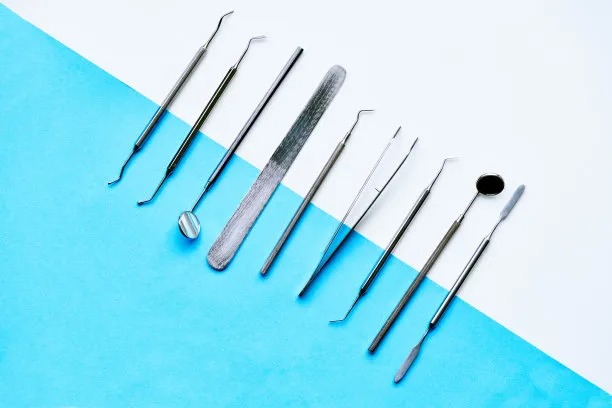Summary: Dental fillings are a common procedure for maintaining optimal oral health, but they require careful consideration before undergoing treatment. This article explores essential guidelines that patients should consider, including understanding the different types of dental fillings, assessing the qualifications of the dentist, recognizing the importance of good oral hygiene, and being aware of aftercare requirements. Each of these factors plays a critical role in ensuring the success of the dental filling procedure and enhancing long-term oral health. By being informed and prepared, patients can make better choices that lead to effective treatments and maintain a healthy smile.
1. Understanding Different Types of Dental Fillings

Before deciding on a dental filling, it’s vital to understand the various types available. Common materials include amalgam, composite resin, gold, and porcelain. Each has distinct properties that can influence your decision based on durability, aesthetics, and cost. For instance, amalgam fillings are often chosen for their strength and longevity, especially for back teeth.
Composite fillings, on the other hand, are pleasing to the eye, making them suitable for cosmetic purposes. Its important to discuss the pros and cons of each material with your dentist to determine which is best suited for your particular case.
Additionally, consider the implications of choosing a specific type of filling for your overall oral health. Some materials may expand or contract with temperature changes, potentially affecting the integrity of the surrounding tooth structure over time. Understanding these factors will guide you in making an informed choice regarding your dental fillings.
2. Assessing the Dentist’s Qualifications
Choosing the right dentist is crucial for successful filling procedures. Always check the qualifications and experience of your dentist; they should be licensed and have a good track record in performing dental fillings. Experience plays a key role in ensuring the procedure is performed correctly and with minimal discomfort.
Furthermore, take the time to read reviews and testimonials from previous patients. Feedback can provide insights into the dentist’s practice and overall patient satisfaction. Don’t hesitate to schedule a consultation to discuss your specific needs; this will give you a feel for their approach and professionalism.
Another key point is to ensure that your dentist is up-to-date with the latest advancements in dental technology and materials. Continuous education is essential in the fast-evolving field of dentistry, as it signifies a commitment to providing the best possible care.
3. Importance of Good Oral Hygiene
Prior to undergoing dental filling procedures, maintaining good oral hygiene is essential. This not only prepares your mouth for the filling but also enhances the longevity of the filling once it’s placed. Regular brushing and flossing to remove plaque and food particles will help keep your teeth in the best condition, making the procedure more effective.
In addition to home care, regular dental check-ups are vital for early detection of any dental issues that may require fillings. Your dentist can provide personalized advice tailored to your specific oral health needs, helping you achieve optimal hygiene standards.
Moreover, consider dietary adjustments that can contribute to oral health. Limiting sugary foods and beverages and increasing the intake of fruits and vegetables can bolster the health of your teeth and gums, setting a solid foundation before you undergo any dental work.
4. Awareness of Aftercare Requirements
Aftercare is just as important as the procedure itself. Post-filling care ensures that you heal properly and prevents complications. Your dentist will provide specific aftercare instructions, such as avoiding certain foods during the initial healing period and maintaining good oral hygiene practices.
Be mindful of potential sensitivity issues that may arise after getting a filling. It’s common to experience some sensitivity to temperature extremes; however, if this persists for an extended period, it’s important to contact your dentist to rule out any problems.
Additionally, keeping a regular schedule of dental check-ups after your fillings can be helpful. This allows your dentist to monitor the condition of the filling and surrounding teeth, ensuring that everything is functioning optimally for long-lasting results.
Summary:
In conclusion, preparing for dental filling procedures involves understanding the different types of fillings, selecting a qualified dentist, maintaining good oral hygiene, and being aware of aftercare requirements. These essential guidelines serve to manage expectations and ensure successful treatment while also contributing to long-term oral health maintenance.
This article is compiled by Vickong Dental and the content is for reference only.
Vickong Dental
Vickong Dental is a large medical group established in Hong Kong in 2008 by professors from well-known medical universities in Guangdong and Hong Kong, as well as medical doctors from key national '985' universities (including Master's supervisors and senior professors). The chain of branches brings together expert dentists with PhDs and Master's degrees from Hong Kong and Mainland China, committed to providing high-quality dental treatment.
"Vickong Dental Practices the University Motto of 'Healing and Serving Society,' with a Stable Operation for Sixteen Years. It Has Been honored with Hong Kong Enterprise Leaders's Choice,' and is a Global Trusted Implant Center for the Nobel Implant System. Recommended by Hong Kong Metro Broadcast and Guangdong Television, it Serves Customers from Over Thirty Countries and Regions, Gaining the Trust and Favor of Citizens from the Guangdong-Hong Kong-Macau Greater Bay Area and Surrounding Cities.

Thousands of customers' unanimous praise
The most recognized and highly recommended dental service by customers in the Guangdong-Hong Kong-Macau Greater Bay Area
We Ensure You Receive Detailed Care and Attention Here
Hong Kong standards, Shenzhen prices, Your Trusted English-speaking dentists

Vickong Dental Medical-Grade Instrument Disinfection Process
Vickong Dental Medical-Grade Instrument Disinfection Process

Vickong Dental Chain: A Warm and Comfortable Environment for Treatment






Appointment Hours

Q&A
Why choose Vickong Dental?
Vickong Dental practices the university motto 「Medicine to Benefit Society」, with each branch bringing together highly qualified dentists with doctoral and master’s degrees from Hong Kong and the Mainland, and has maintained seventeen years of steady operation。Recipient of 「2024 Hong Kong Enterprise Leaders Brand」, 「2025 Hong Kong Enterprise Leaders Brand」, a Nobel Biocare Global Trusted Implant Center, and a brand recommended by Metro Radio Hong Kong and Guangdong TV。
To date, we have served customers from more than thirty countries and regions,earning exceptionally high word-of-mouth recognition and trusted recommendations from residents across the Guangdong-Hong Kong-Macao Greater Bay Area and surrounding cities
We have eight major branches in Zhuhai、Shenzhen,and a consultation and service assurance center in Hong Kong,so you can book a free consultation at any time for any questions,which is very reassuring.
If I do not accept the quotation after the CT scan, will I be charged??
No! As long as the actual treatment has not started, you will not be charged any fees.
Will there be any additional charges during the treatment process?
No, there won’t be any additional charges. Before treatment begins, we will clearly explain the treatment plan and its corresponding fees. Only after the patient agrees and signs the consent form will we proceed with the dental service.
Can I pay in Hong Kong dollars?
Yes. Vickong Dental accepts payment in Hong Kong dollars. The amount will be converted based on the exchange rate of the day, and the applicable rate will be clearly communicated to you in advance.
Can I reschedule my appointment at any time?
Yes. Please contact us via **WeChat** or **WhatsApp** as early as possible, providing your original appointment time and details, along with your preferred new date and time slot for rescheduling.













